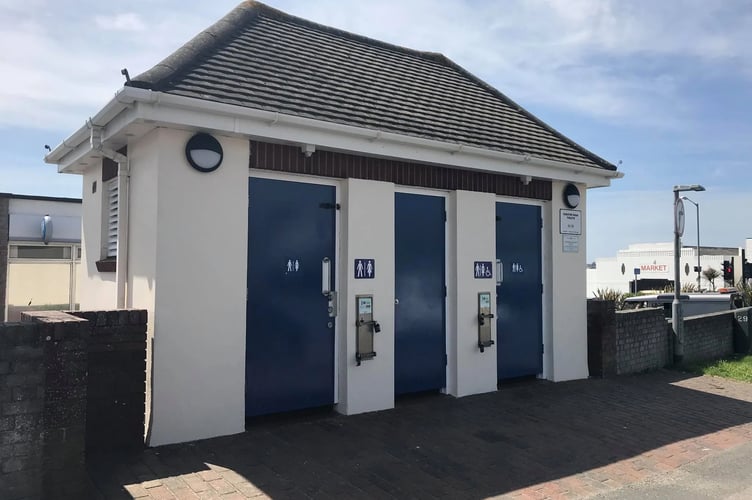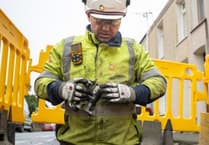CONCERNS have been raised two public toilets have been closed down in Newquay for the foreseeable future.
Newquay Town Council has decided to shut Pentire Headland toilets due to Cornwall Council “choosing” to transfer Pentire Headland car park to the Cornish Heritage Trust and the Chester Road toilets because of low usage.

The authority also plans to reduce the number of cubicles open during winter at other sites while “always keeping at least one accessible toilet open,” except when essential repairs are needed.
Pentire Residents Association has questioned the closures stating Newquay has a population of more than 100,000 in the summer alone, but town councillors have made the decision due to rising costs and vandalism.
The town council’s environment and facilities committee decided to close the public toilets at its meeting on Thursday, October 16.
A town council spokesperson said: “These decisions were not taken lightly and come after many months of discussion about how to protect and sustain this service in the face of rising costs and vandalism.
“The town council originally took on these toilets from Cornwall Council alongside several other facilities, on the understanding that the associated car park would also be devolved to help fund their long-term maintenance.
“Cornwall Council has since chosen to transfer that car park to the Cornwall Heritage Trust instead. This change meant the Council’s agreed funding model for Pentire Headland could no longer work.
“Since learning of that decision, the town council has been in communication with the Cornwall Heritage Trust about their potential taking on of the Pentire Headland toilets.
“We have shared information with them and held several meetings, and we now await their decision.
“The committee therefore decided to close the toilets at Pentire Headland and Chester Road. The council remains open to partnership working with the Cornwall Heritage Trust, given that the vast majority of use at Pentire Headland is from car park visitors.
“Newquay Town Council currently operates around 13 public toilet sites, more than any other town in Cornwall, at a total annual cost of approximately £400,000.
“While some towns have had to close their public toilets or decided not to take on some or all of theirs from Cornwall Council, Newquay Town Council took on all of its facilities when they were devolved.
“Apart from the Beach Road toilets, which were sold due to a lack of investment before transfer from Cornwall Council, and the station toilets, we have kept all facilities open and even invested in a new Changing Places facility on the Killacourt to improve accessibility as well as toilets at the train station and Concrete Waves.
“Despite this strong record, the council continues to face escalating utility, staffing, and maintenance costs. Frequent vandalism and antisocial behaviour, including damage and drug-related waste that requires specialist disposal.
“Limited use at certain sites, particularly Chester Road, which has seen very low daily footfall. Ongoing capital investment due to regular overhauls of the sites.”
The town council said the “difficult” decision to “safeguard the wider service for the long term.”
The town council added: “Reducing winter openings and closing less-used sites will help focus limited funds on maintaining and improving the busiest and most essential toilets.
“We understand that public toilets are viewed by many as an essential public service. That’s why Newquay Town Council has worked hard over many years to keep them open, clean, and well maintained, when many towns have not been able to.
“However, we must balance that commitment with financial sustainability and value for money for residents — most of whom do not regularly use these facilities.
“We will continue to ensure an accessible cubicle remains open at all key sites year-round except when closed for unavoidable repair and review charging options at busier sites to help offset running costs.
“We know this is an emotive issue, and we appreciate everyone’s understanding as we work to ensure Newquay can continue to provide well-maintained, safe, and financially sustainable facilities for years to come.”


.jpeg?width=209&height=140&crop=209:145,smart&quality=75)
.png?width=209&height=140&crop=209:145,smart&quality=75)

Comments
This article has no comments yet. Be the first to leave a comment.